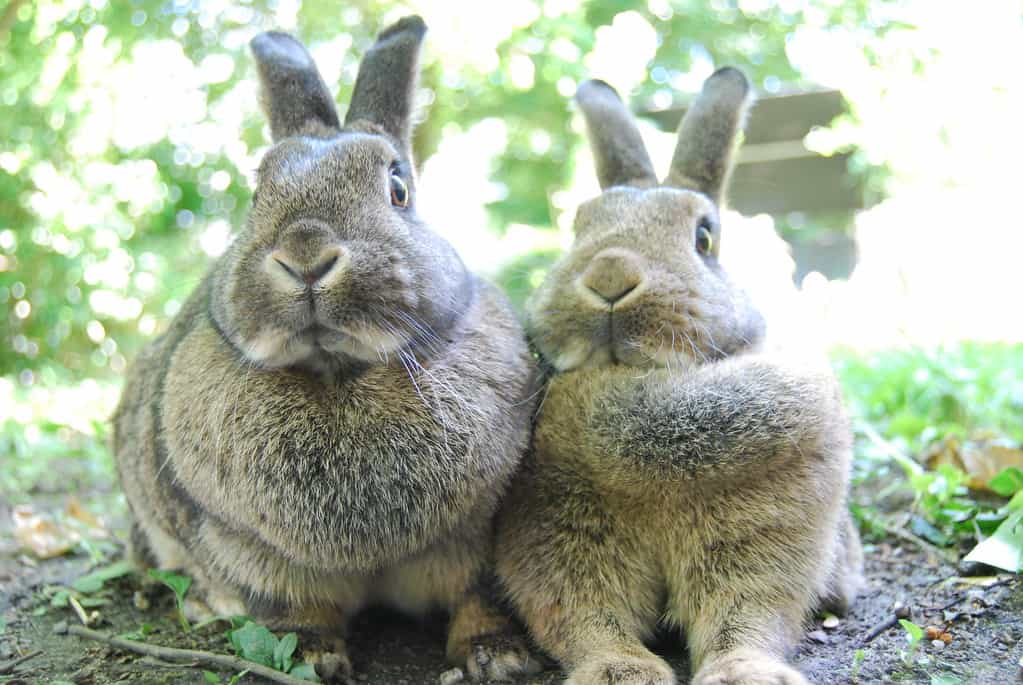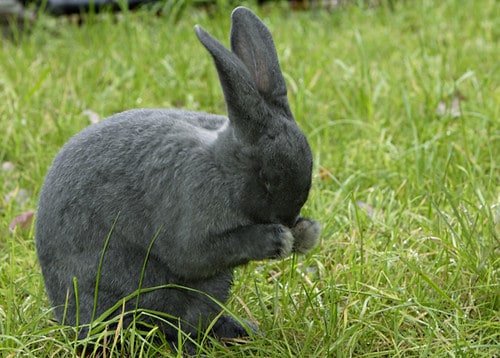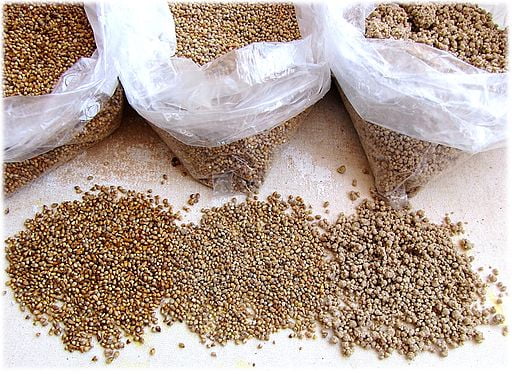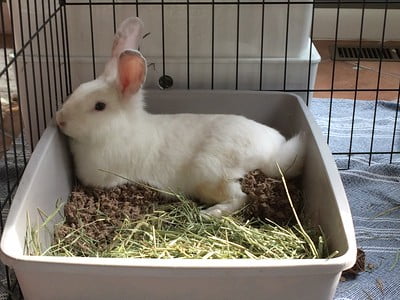Last Updated on March 1, 2023 by Marjon Ramos
Yes, you can still litter train an older rabbit. In fact, it’s much easier to litter train an older rabbit compared to younger ones. The reason is that young unneutered rabbits who have entered sexual maturity often forget their litter training or spray urine everywhere.
While old rabbits are more relaxed and easier to train given that they are already neutered.
The best age to litter train a rabbit is as young as possible. Just make sure that you get your rabbit neutered at 6 months to prevent any hormonally induced behavior such as urine spraying.
Now that I’ve given you the gist of the article, read on as I explain in more detail if you can still litter train an older rabbit:
What’s the difference between litter training a young rabbit and an older rabbit?

Older rabbits are easier to train than younger rabbits, especially babies. A rabbit’s attention span and knack for learning increases as they grow up.
(House Rabbit Society)
The biggest difference when litter training an older rabbit compared to younger ones is their attitudes towards it. Due to a lack of attention span, young rabbits would likely forget their litter training later on.
Older rabbits would likely learn much more quickly, especially if they are already neutered or spayed.
But at the end of the day, the age of the rabbits is not that big of a factor when it comes to litter training a rabbit. What actually matters is whether or not they are neutered.
Unneutered rabbits are harder to train due to outbursts of hormones and an instinct to mark their territory. They mark their territory by spraying urine on the sides of their cages or outside their litter boxes.
Unneutered young rabbits who were litter trained would often forget their litter training after reaching puberty or their sexual maturity.
Neutering the rabbit would tone down this instinct to urinate to mark their territory, making it easier to train. Not to mention, unneutered rabbits have a stronger urine smell due to ammonia.
So make sure that your rabbits are neutered to make your life easier.
Best age to litter train a rabbit?

If you have a baby, stick with it! And if you are deciding whether to adopt an older rabbit, or litter train your older rabbit, go for it!
(House Rabbit Society)
You should litter train your rabbit as young as possible, but make sure that you get them neutered at 6 months to make their litter box habit more stable and permanent.
But if your rabbit is older, you can still litter train them. The key when litter training a rabbit is patience. Stick with it at all cost!
Summary
Litter training an older rabbit is much easier compared to litter training young rabbits. The reason is that once young unneutered rabbits reach sexual maturity, they often forget their litter training.
Sexually mature rabbits have an instinct to mark their territory by spraying urine everywhere. They would often spray urine around their cages and outside the litter box.
The best way to handle litter training is to train your rabbit as early as possible, and then, before reaching sexual maturity at 6 months, get your rabbit neutered to prevent them from forgetting their litter training.
Cite this article:
Related Articles
- Can Rabbits Eat Asparagus? 9 things you need to know.
- Can Rabbits Eat Tomatoes? What You Need To Know.
- Can Rabbits Eat Watermelon? What You Need To Know.
- Can Rabbits Eat Grapes? What You Need To Know.
- Can Rabbits Eat Broccoli? What You Need To Know.
- Can Rabbits Eat Apples? What You Need To Know.
- Can Rabbits Eat Cabbages? What You Need To Know.
- Can Rabbits Eat Strawberries? What You Need To Know.
- Can Rabbits Eat Bananas? What You Need To Know.
- Can Rabbits Eat Oranges? 9 things you need to know.
- Can Rabbits Eat Blueberries? Here’s Why.
- Can Rabbits Eat Spinach? Your Questions Answered.
- Can Rabbits Eat Cucumbers? Here’s Why.
- Can Rabbits Eat Celery? What you need to know.
- Can Rabbits Eat Radishes: Everything You Need To Know
Sources and further reading
- Buseth, Marit Emilie., and Richard A. Saunders. Rabbit Behaviour, Health, and Care. CABI, 2014.
- Lebas, F. The Rabbit: Husbandry, Health, and Production. Food and Agriculture Organization of the United Nations, 1997.
- Patry, Karen, et al. The Rabbit-Raising Problem Solver: Your Questions Answered about Housing, Feeding, Behavior, Health Care, Breeding, and Kindling. Storey Publishing, 2014.
- Neutering in Rabbits
- Litter Training




